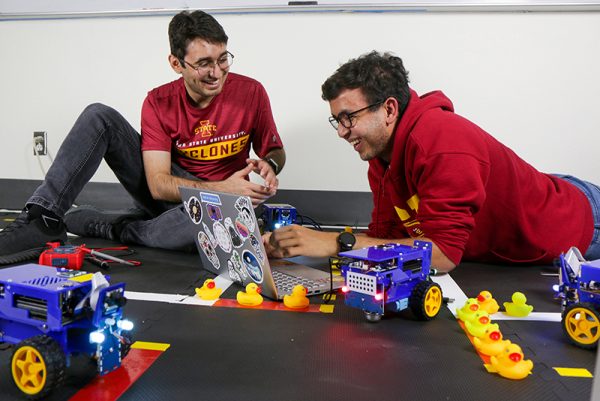AI skills will make you stand out
When you send your resume to your first potential employer, a minor in applied AI will show them that you’re familiar with uses and implications of the world’s fastest growing innovative tools.
Employers are aware that every industry – from industrial engineering, to food science, to interior design, to chemistry – can benefit from applying AI, but some may not yet know how. With Iowa State’s minor in applied AI, you’ll learn how AI is integrated into a broad range of industries, and the impact it has on individuals and communities. You’ll bring a knowledge of AI tools and technologies that will be valuable in your future workplace.



 What classes you’ll take
What classes you’ll take